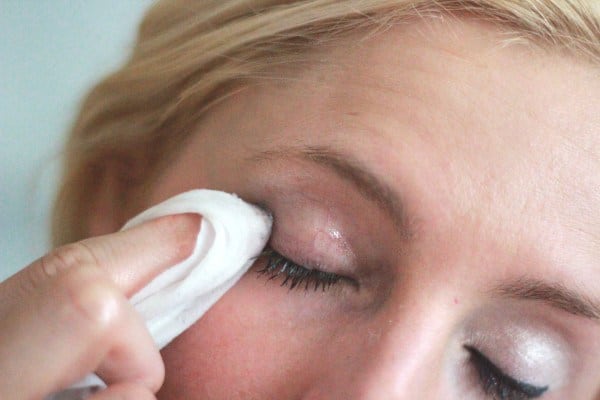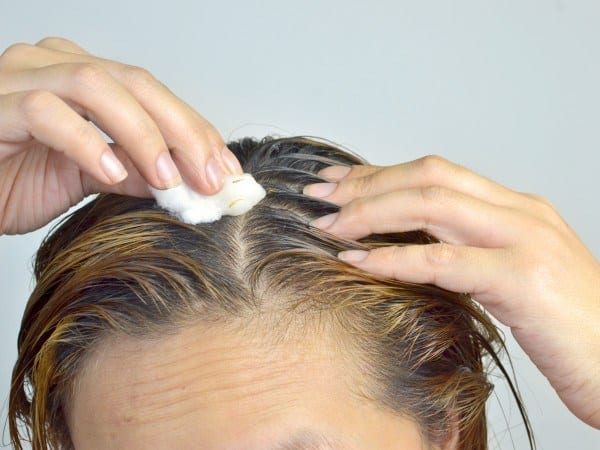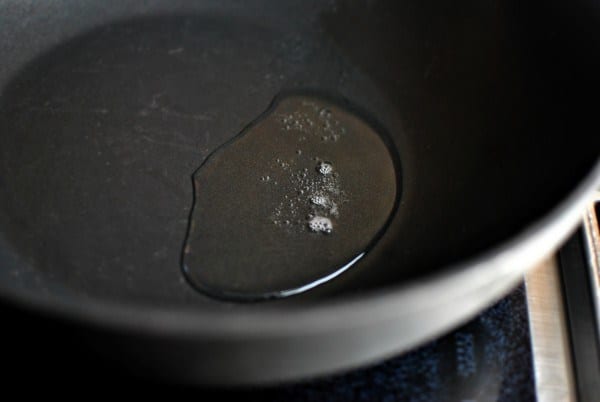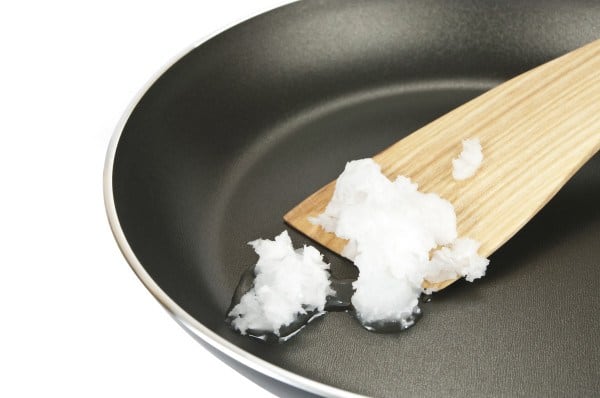Coconut oil is a gift to mankind. It’s as versatile as white vinegar and baking soda, but without the strong smell or prickling sensations. A natural favorite among beauty connoisseurs and Victoria’s Secret models, coconut oil can find a place in your bathroom, in the kitchen cupboard, and hidden away in your bedroom — it works well in salads, choc chip cookies, morning smoothies, and your hair. And best of all, it’s one of the most beneficial foods you can consume for your health.
#1. It’s a natural makeup remover.

Mascara and eye shadow are water resistant, which is why washing makeup off with a towel and a tap is more of a rigorous workout than a bedtime routine. Coconut oil breaks makeup particles apart, and does so without aggravating the skin. Just take a scoop and rub it into your face — then take some cotton wool and gently wipe the oil away, saying goodbye to your layers in the process.
#2. It’s ridiculously great in body scrubs.

Coconut oil isn’t just non-aggravating to your skin — it’s your skin’s best pal. Mix it with some sea salt, brown sugar or coffee grounds for an amazing (and cheap) natural body scrub. The salt, sugar and coffee will exfoliate your skin (and the coffee energizes you), while the coconut oil softens and moisturizes your skin.
#3. And in your bath.

Another great way to soak in the stuff is to stick it in a warm bath. Mixing a few scoops of coconut oil with some Epsom salts, or alternatively essential oils, can give you an aromatic and therapeutic bath-time experience inside and out.
#4. And your hair.

The internet doesn’t lie — and it declares that coconut oil is the key to beautiful, voluminous, shiny hair. Because of its oily consistency, medium-chain saturated fat and delicious aroma, coconut oil works great as an after-bath hair treatment, natural conditioner, and easy solution to tangled hair. Gently melt the oil, dab your fingers in it, and work it into your hair from the tips to the scalp — don’t get too generous, or you’ll simply have a head of oily hair.
#5. AND on rashes.

Coconut isn’t just a collection of any old fatty acids — it’s got lauric acid, which is a lauded medium chain fatty acid with antibacterial and insect repelling properties. This, together with its moisturizing qualities, makes it a valid application for rashes and allergies. It may not necessarily replace your medication, though.
#6. Coconut oil helps prevent and/or heal stretch marks.

Stretch marks are caused when sudden stretching of the skin causes scarring in the deeper layers of the epidermis as it gets torn apart — and this is difficult to heal, primarily because not many substances seep that deep into your epidermis. However, thanks to its medium-chain fatty acids, coconut oil does seep deeper than other therapeutic oils — and according to anecdotal evidence, that itself helps a lot with healing your scars.
#7. It works as an aftershave.

Due to its antibacterial potential and moisturizing qualities, coconut oil is a great candidate for a simple, natural and homemade alternative to commercial aftershave — it’s soothing, and jumping into a bath with coconut oil after a shave is a good idea. But be warned: it works for some people, and leaves others razor-burned.
#8. Combine coconut oil and baby powder for an effective antiperspirant.

Looking for a natural deodorant and antiperspirant — one that doesn’t contain aluminum or other particles you’d rather not have anywhere near your sweat glands? Then combining coconut oil and baby powder is a great way to both neutralize your body odor, and absorb excessive sweating.
#9. Coconut oil is much, much healthier than common seed oils.

While you’d think vegetable oils are healthier than, say, fish or butter, you’re wrong. Part of a natural human diet is a roughly 1:1 ratio between omega-6 and omega-3 fatty acids — with today’s consumption of cooking oils such as corn, soy, canola, safflower and sunflower, we’re closer to 16:1. This leads to an increased risk in both cancer and heart disease, and pain from inflammation. Coconut oil has a much more equal ratio of omega-3 and omega-6, making it a better choice to cook with.
#10. It’s one of the healthiest sources of saturated fat.
Coconut oil is a relatively healthier, if not just vastly different source of saturated fat than butter, lard, and meat. That’s because unlike the long-chain fatty acids in those sources, coconut oil’s medium-chain fatty acids are metabolized differently by our bodies.
#11. It has relatively high heat resistance, making it safe to cook with.

Polyunsaturated fats, which include omega-6 fatty acids, have a very different chemical composition to monounsaturated and saturated fats. They react to heat in negative ways, oxidizing quickly and becoming harmful in the process. Olive oil and coconut oil are both fairly heat resistant, although coconut oil is a much safer choice to cook with as it has a higher smoke point. When oil begins to smoke, it loses most of its nutritional benefits, and becomes unhealthy.
#12. Coconut oil replaces butter and milk in vegan baking.

Look up recipes for delicious vegan cookies and cakes, and you’re nearly guaranteed to find coconut oil lurking in the recipe. This is because of coconut oil’s high amount of saturated fat, which makes it more ideal than other vegetable oils and, more importantly, the delicious flavor and aroma that coconut oil gives.
#13. Coconut oil in your diet reduces your appetite.

Coconut oil is a great way to suppress appetite, surprisingly. Medium-chain fatty acids are metabolized by the body into ketones — these, according to research, have a natural appetite reducing effect. Studies done between groups of people eating regular diets, and diets including medium-chain fatty acids, showed that the latter ate less.
#14. It also boosts your fat burning abilities.

On top of reducing appetite, ketones are fuel for the body — and this alone means that they burn more easily than other types of fat. If you obtain a significant amount of your essential fatty acids from coconut oil, your body will have an easier time making sure you don’t store any excess. Energy expenditure is also higher in people who produce ketones, leading to more calories burnt during exercise.
#15. Coconut oil is a great natural lubricant.

Not much else needs to be said here — coconut oil is moisturizing, long lasting, antibacterial, keeps from going rancid, and if you enjoy its taste and aroma then it’s perfect for massages and more vigorous fun. However, do beware that coconut oil stains are just as hard to remove as many other oils, and worse if you live in a cold environment. Make sure to heat the oil a bit so it doesn’t harden (unless you live in the tropics), and make sure you’re using coconut oil with a trusted partner, as it breaks down latex condoms.
#16. It reduces your risk of heart disease, stroke, and cancer.
The fatty acids in coconut oil have anti-inflammatory effects that reduce the risk of cardiovascular disease — they can even boost HDL levels, raising protection against diseases by counteracting LDL cholesterol. A study done by Columbia University showed that diets high in Capric acid, which is a medium-chain fatty acid, led to higher HDL levels than what would be considered “healthy” by the American Heart Association.
#17. It can help treat diabetes.
Coconut oil can reduce glycemic index and improve insulin sensitivity in those who have type II diabetes. Many diabetics have a diet containing a decent amount of fat, and coconut oil is a great way to meet that requirement in a healthy manner.
#18. It can help with heart burn and acid reflux issues, stomach ulcers, and IBS.
Coconut oil has been used as an antifungal and antibacterial agent for centuries, and it has helped many people with stomach and digestive issues. The high fatty acid content gives relief to those who struggle with inflammatory bowel diseases such as ulcerative colitis and Crohns disease.
#19. It can help you fight off infections, viruses, and fungi including yeast infections.
Coconut oil is a tasty addition to herbal remedies, and it’s also an anti-fungal agent that can be effective against candida albicans yeast infections. The fatty acids kill invading microbes, including parasites. Coconut oil has been found extremely useful for those who are suffering from HIV/AIDS or are malnourished, as it helps those with weakened immune systems to fight off infections and live longer.
#20. Coconut oil can help you lose weight.
The medium-chain fatty acids in coconut oil allow for constant burning of energy, which means that you’ll feel full and won’t want to consume as many calories throughout the day if made a regular part of your diet. It’s highly resistant to oxidation, which means that it won’t go rancid or keep you feeling ‘crappy’ the way other oils might if they’re stored for too long. Plus, there are countless delicious recipes out there that use coconut oil as an ingredient.

